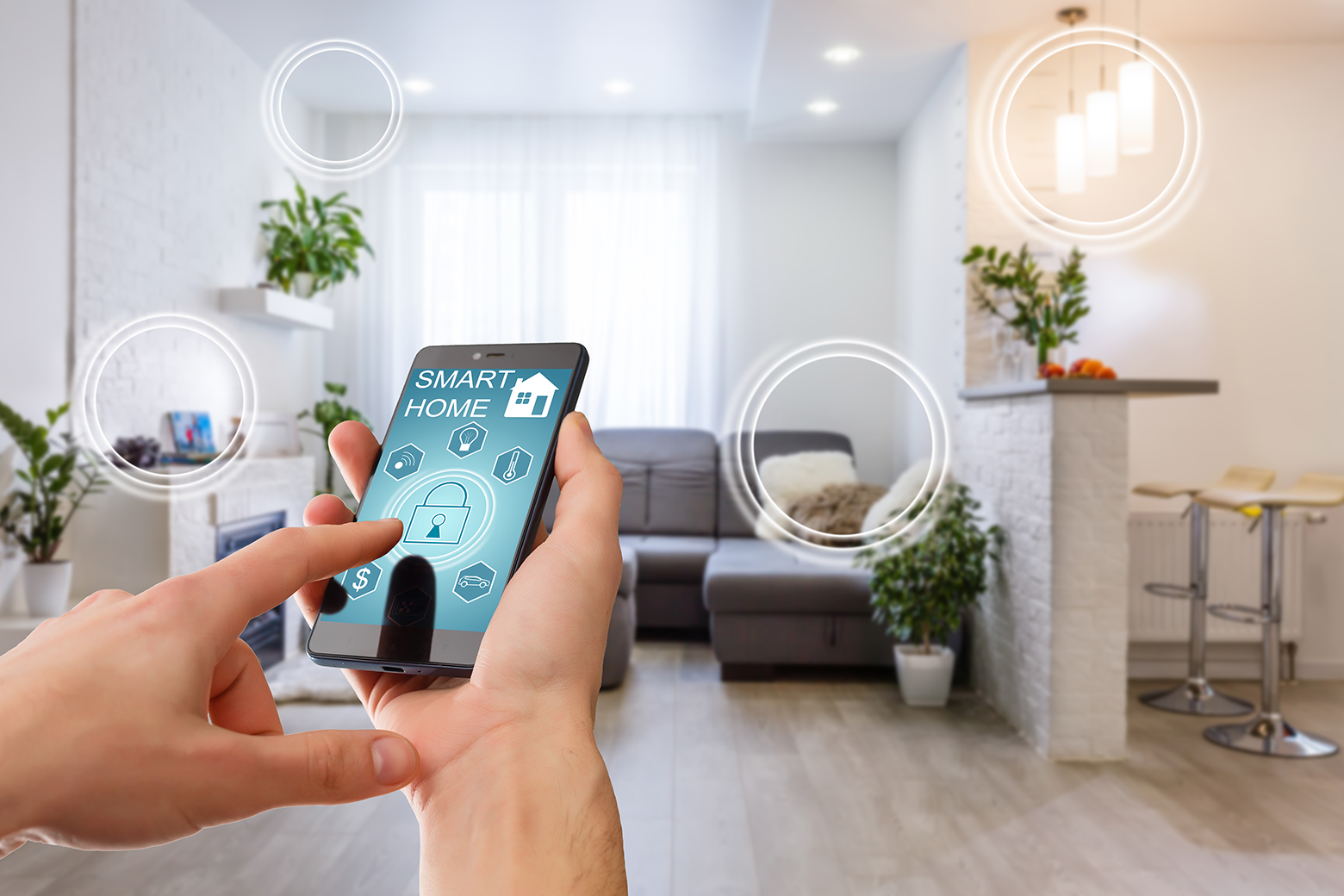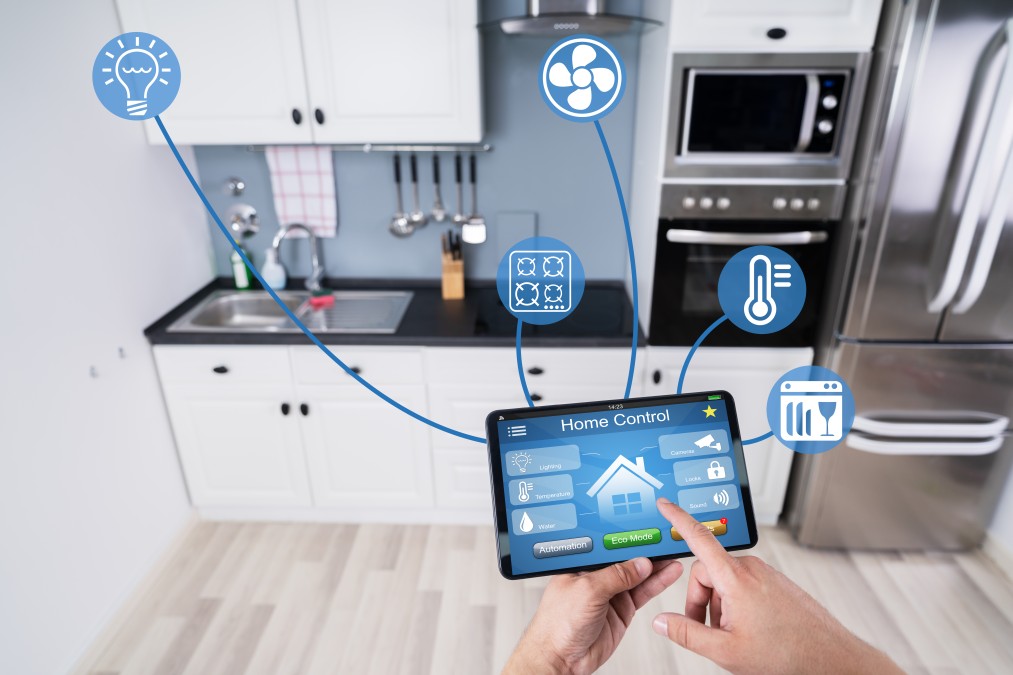As we navigate through the 21st century, the integration of AI and robotics in smart homes has become a fascinating frontier that intrigues both homeowners and businesses. This technological revolution promises to reshape our living spaces, making them more efficient, secure, and tailored to our needs. In this article, we delve into the transformative power of AI and robotics, exploring how they are redefining the concept of a smart home.

The Rise of Smart Homes
Smart homes are no longer a futuristic dream; they are a present-day reality. With the advent of the Internet of Things (IoT), homes are becoming increasingly interconnected, with devices that can communicate with each other to create a seamless living experience. From smart lighting systems that adjust based on natural light availability to security systems that can identify intruders, the possibilities are endless. The integration of AI and robotics in smart homes is not just about convenience; it's about creating a living space that anticipates and responds to the needs of its inhabitants.
AI: The Brain Behind Smart Homes
Artificial Intelligence is the driving force behind the smart home revolution. AI systems are designed to learn from user behaviors and adapt accordingly. For instance, a smart thermostat can learn your temperature preferences over time and adjust settings automatically, leading to energy savings and enhanced comfort. AI-powered voice assistants, such as Amazon's Alexa or Google Assistant, enable homeowners to control various aspects of their homes using simple voice commands, making life more convenient and efficient.
Enhancing Energy Efficiency
One of the significant advantages of incorporating AI in smart homes is the potential for enhanced energy efficiency. AI systems can analyze energy consumption patterns and suggest optimal usage schedules, helping homeowners reduce their energy bills. According to a detailed guide on AI reducing energy waste at home, smart homes equipped with AI can significantly cut down on unnecessary energy usage.
Robotics: Bringing Automation to Life
While AI provides the brains, robotics brings the brawn. Robots in smart homes are becoming increasingly sophisticated, capable of performing a variety of tasks to improve the quality of life for residents. From robotic vacuum cleaners that keep floors spotless to robotic lawn mowers that maintain a pristine garden, these automated helpers are transforming household chores. Additionally, advancements in robotics are paving the way for more complex applications, such as robotic chefs and personal assistants, which could soon become a staple in many smart homes.
Improving Home Security
Security is a primary concern for homeowners, and the integration of AI and robotics in smart homes offers innovative solutions. AI-powered surveillance cameras can distinguish between a family member and an intruder, sending real-time alerts to the homeowner's smartphone. Similarly, robotic security guards can patrol the premises, providing an added layer of protection. For those interested in exploring more about smart home security, this installation guide offers valuable insights.
Challenges and Considerations
While the benefits of AI and robotics in smart homes are undeniable, there are challenges and considerations that homeowners and businesses must keep in mind. Privacy concerns are at the forefront, as smart devices collect and store vast amounts of personal data. Ensuring that this data is protected and used responsibly is crucial. Additionally, the cost of implementing these technologies can be a barrier for some homeowners. However, as technology continues to evolve, prices are expected to become more accessible.
The Future of Smart Homes
The future of smart homes, powered by AI and robotics, looks promising. As technology advances, we can expect even more sophisticated systems that offer greater convenience, security, and energy efficiency. For homeowners and businesses looking to embrace this trend, it's essential to stay informed and choose solutions that align with their needs and lifestyle. For more information on smart home devices, this article provides a comprehensive overview.
Conclusion
In conclusion, the integration of AI and robotics in smart homes is revolutionizing how we live and interact with our environments. From enhancing energy efficiency to improving home security, these technologies offer a myriad of benefits that are hard to ignore. As we continue to explore the possibilities, one thing is clear: the future of smart homes is bright, and the role of AI and robotics will only continue to grow.

FAQs
1. How do AI and robotics improve energy efficiency in smart homes?
AI systems can analyze energy usage patterns and suggest optimal schedules for device operation, reducing unnecessary consumption. Robotics can automate tasks such as adjusting blinds or turning off lights, further enhancing energy efficiency.
2. Are smart home devices secure from hacking?
While most smart home devices have built-in security features, it's essential for homeowners to use strong passwords and keep their systems updated to protect against potential cyber threats.
3. What are some challenges of integrating AI and robotics in smart homes?
Challenges include privacy concerns due to data collection, the cost of implementation, and the need for continuous updates and maintenance to ensure optimal performance.

